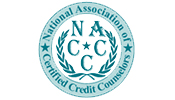
Start Now To
Eliminate Debt
- Reduce High Interest
- May Lower Payments
- Stop Collection Calls
- Stop Late/Over Limit Fees
Become Debt Free Now.
- Founded 2002
- Assisted Over 500K People
- Professional Staff
- Free Educational Services


Start Now To
Eliminate Debt
Become Debt Free Now.

If you’re looking for Credit Card Debt Relief, there are a number of solutions that may give you the relief you’re looking for. In this article we will review the solutions that are used by the majority of people looking to resolve credit card debt. Those solutions are as follows; Debt Consolidation Loans, Balance Transfers, Debt Management Plans, Bankruptcy, and Doing Nothing.
Let’s start with Doing Nothing, not paying the accounts, not enrolling in debt management or consolidating; just letting the accounts go with no solution at all. This is an option, not necessarily a good one, but it is an option.
If you’re going to “do nothing” and no longer pay on the accounts, you should at least understand the repercussions that may come about by doing so. The number one repercussion will be the effect on your credit score. If the minimum payment requirements are not made on time your credit score will suffer. If you stop making payments all together you will have a 30, 60, 90, & 120-day late notation listed on your credit report. Once a credit account reaches 120 days late it is typically notated as a “charge off”. This is the most negative that an account can get.
Charge off means that the creditor has written the account off as a loss. You still owe the debt. That information will stay on the credit report for at least 7 years. Even after the 7 years, you still owe the debt. Creditors can and do attempt to collect the debt years after the account reaches charge off status.
It is also important to know that if your account falls delinquent, and you eventually pay the account off, the delinquent notations on the credit report will remain on the report for a minimum of 7 years. The balance may be zeroed out or the account noted as “paid in full”, but the negative marks will remain.
The other major repercussion of doing nothing could be getting sued. Credit Card company lawsuits have increased over the years to the point where according to a report by NPR. 1 in 10 Americans are having their wages garnished. If you’re going to do nothing, make sure you consider the possibility of getting sued as a real possibility. Some people are at much greater risk than others. For example, if you have no assets & you collect “protected income” like social security or other public entitlement benefits then your risk is very low. Even if you are sued, there is nothing they can get from you. But if you are employed and or have assets, be very careful taking a “do nothing” approach to credit debt relief .
Another possible solution is bankruptcy. This will remain on your credit report for at least 10 years and you will have to answer for it on certain loan applications for the rest of your life. Be careful of this solution; to many people have taken this route, thinking they would find relief only to discover that the Bankruptcy Courts have become something of a “racket”. The lawyers & the trustees get paid first, and some people go into a bankruptcy thinking their debts will be wiped out in a chapter 7, but then are put in a chapter 13 repayment plan. We are not giving legal advice here; you need to contact a reputable attorney for that. But use common sense, if you have a relatively low amount of debt; compare that with the attorney fees you will have to pay.
There are limits to how long a creditor has to sue you. The range is 3-15 years depending on what state you live in. You can check your state’s statute of limitations at Credit.com.
The next possible solution for Credit Card Debt Relief is a debt management plan. These plans lower interest rates, stop fees, and may even lower your monthly payment. You can enroll in a debt management plan by contacting a non-profit credit-counseling agency.
Last but not least are loans & balance transfers. If you have a high enough credit score & income, you may qualify for a low interest loan or balance transfer offer. However, if your cards are maxed out, you are not likely to qualify. Use caution when considering a new loan or credit card to pay off debt. You could end up compounding the problem.
The best option for Credit Card Debt Relief is do a budget, reduce expenses if you need to, stop making charges on the cards and pay more than the minimum payment on the cards. If you have a good payment history, contact the bank & see if you qualify for an interest rate reduction.
All content, material and software is copyright Debt Consolidation Center © 2003 - 20201/p>